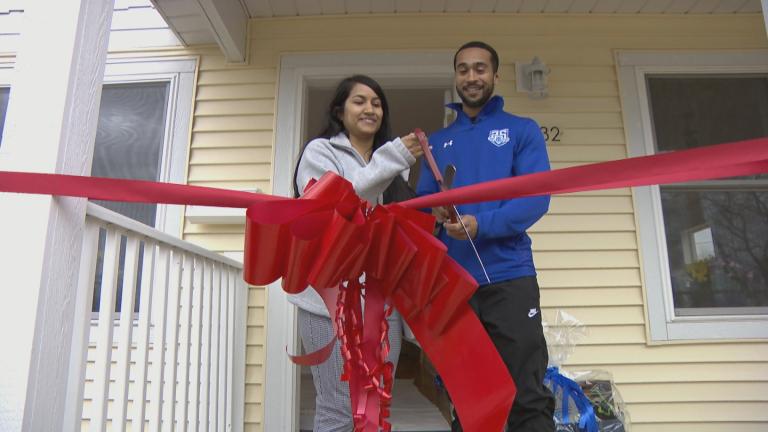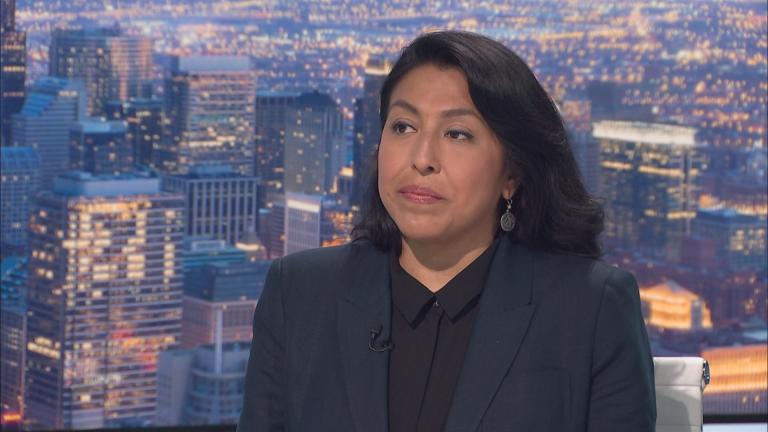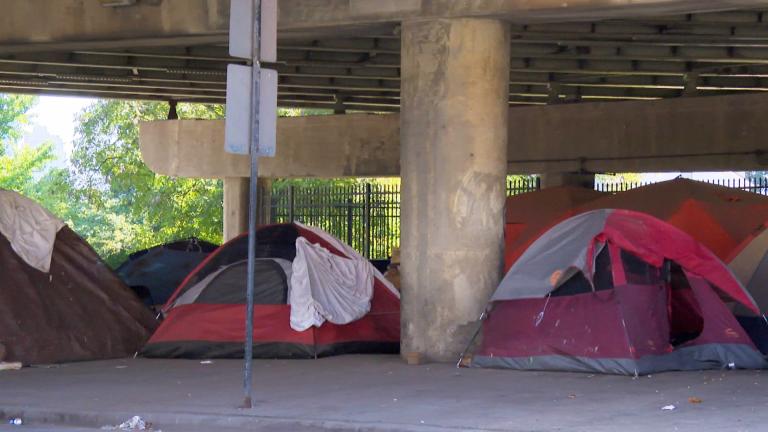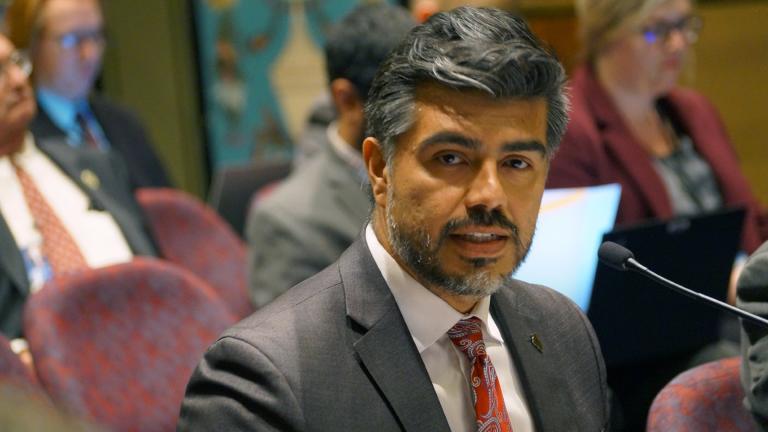In the 1950s and ‘60s, Black families were often forced to pay often double — or more — to buy a home, in what was known as contract buying.
As a result, instead of earning equity and passing down generational wealth, Black homeowners often lost their homes.
Now, a local artist is highlighting those injustices by working to revitalize vacant lots in Englewood. It’s part of her latest project, “unBlocked Englewood.”
Tonika Lewis Johnson, the artist behind the project, said it came along after she met Englewood homeowners who were struggling to afford house repairs. She also noticed the amount of arts funding directed at finding ways to amplify these issues of historical disinvestment and decided to use that funding to find solutions.
“So beyond sculptures, murals, gardens, I wanted to take this as an opportunity to actually solve, and using the homes as a form of sculpture, as a form of art,” Johnson said. “Before you can beautify a home and have a collection of homes represent an artistic activation on a block, you have to deal with the tangible infrastructure that needs repair.”
To do this, Lewis Johnson partnered with the Chicago Bungalow Association to help take care of the overdue improvements. So far, they’ve been able to fix roofs, broken pipes, drywall and more, leading to more comfortable living conditions for residents.
Carla Bruni is the preservation and resiliency specialist for the association and said the issues can become overwhelming when resources aren’t available.
“If you have, you know, a leaky roof, anytime you’re trying to heat or cool your home, it’s going to cost you a heck of a lot more,” Bruni said. “Everything seems to compound and then the longer these repairs go, then everything just gets exponentially worse over time.”
Once the basic repairs are completed, residents will be able to continue to rebuild the block. The project aims to fix up vacant lots, create places to sit, beautify home exteriors and more, Lewis Johnson said.
“This block in particular represents the struggles of so many, not only in Englewood, but in other Black neighborhoods that have dealt with these historic discriminatory housing practices,” Lewis Johnson said. “And so this project is hoping to not only amplify how solutions need to be addressed a little bit more creatively … because in order to create more Black homeowners, you really have to support the existing Black homeowners.”








